PRAISE FOR
THE GERTRUDE STEIN READER
There have been many Anthologies, Chrestomathies, and Readers of Gertrude Steins work, a multiplicity corresponding to the diversity and development of the writings she produced with such astonishing continuity all her life. In his lively selection, Mr. Kostelanetz has successfully represented one aspect of Steins repertoire and provided a characteristic introduction which surely identifies his particular insight into her work. As Gertrude Stein says in Tender Buttons: a line in life, a single line and a stairway. Congratulations all round!
Pulitzer Prizewinning poet Richard Howard
Kostelanetz does it again, gathering Steins lively, liberating, and cleansing words (the words, as she says, we hold in our hands) in a fine new anthology that includes Many Many Women, Wherein the South Differs from the North, Three Sisters Who Are Not Sisters, and How Writing Is Writtentestimony all to Steins prescient originality and Kostelanetzs lifelong commitment to it.
Brenda Wineapple, author of Sister Brother: Gertrude and Leo Stein
Heres proofin readings bound to tease, perplex, and delightthat Stein was the Great American Pioneer in the avant-garde of twentieth-century literature.
William C. Carter, author of Marcel Proust: A Life
Richard Kostelanetz is rightagain. Gertrude Stein is the great American pioneer of the avant-garde. Kostelanetz shows us Stein in all her bounty, ingenuity, and originality.
Catharine R. Stimpson, dean and university professor, New York University, and editor of the Library of Americas two-volume Gertrude Stein: Writings
Gertrude Stein always did things her own way, with no apologies given. Editor Richard Kostelanetz captures the contradictory aspects of her domineering personality and towering presence. He makes quite clear that Stein was a woman for all seasons and for all times.
June Skinner Sawyers, editor of The Lost Generation Reader
THE
GERTRUDE STEIN
READER
The Great American Pioneer of Avant-Garde Letters
THE
GERTRUDE STEIN
READER
Edited with an Introduction by
RICHARD KOSTELANETZ

First Cooper Square Press edition 2002
This Cooper Square Press paperback of The Gertrude Stein Reader is an original publication. It is published by arrangement with the editor.
Copyright 2002 by Richard Kostelanetz
All rights reserved.
No part of this book may be reproduced in any form or by any electronic or mechanical means, including information storage and retrieval systems, without written permission from the publishers, except by a reviewer who may quote passages in a review.
Published by Cooper Square Press
A Member of the Rowman & Littlefield Publishing Group, Inc.
200 Park Avenue South, Suite 1109
New York, NY 10003-1503
www.coopersquarepress.com
Distributed by National Book Network
Library of Congress Cataloging-in-Publication Data
Stein, Gertrude, 18741946.
The Gertrude Stein reader : the great American pioneer of avant-garde letters / edited by Richard Kostelanetz. Ist Cooper Square Press ed.
p. cm.
Includes bibliographical references.
ISBN 978-0-8154-1246-5
I. Kostelanetz, Richard. II. Title.
PS3537.T323 A6 2002
818'.5209dc21
2002008713
Manufactured in the United States of America
 The paper used in this publication meets the minimum requirements of American National Standard for Information SciencesPermanence of Paper for Printed Library Materials, ANSI/NISO Z39.48-1992.
The paper used in this publication meets the minimum requirements of American National Standard for Information SciencesPermanence of Paper for Printed Library Materials, ANSI/NISO Z39.48-1992.
Any human beings putting words together had to make some sense out of them.
Gertrude Stein, in an interview with Robert Haas (1946)
Composition is not a process but a process that displays the growth of the form that the work rendersa process in which statement and observation occur simultaneously. Rendering the process which evolves the work collapses the time of reading, the writing of writing, and diegetic time into the single moment of presence.
Bruce Elder, The Films of Stan Brakhage in the American Tradition (1998)
Pour Marc Dachy,
aprs vingt-huit ans
CONTENTS
PREFACE
Remarkable family Stein
Theres Ep and theres Gert
And theres Ein
Eps sculpture is junk,
Gerts poetry is bunk
And nobody understands Ein.
Once I discovered that there was more to Gertrude Stein than Three Lives and Toklas, I came to regard her among the greatest modern writersin her idiosyncratic ways the equal of William Faulkner and James Joyce. What I had to discover was AnOther Stein, or at least a Stein other than the minor realist who authored those two familiar books. My reading mechanisms were opened by the titles that Stein had self-published in the 1930s (or, more precisely, that her devoted companion Alice B. Toklas had published for her as the Plain Edition). Long scarce in America, these titles were reprinted in the 1960s by the great Dick Higgins under the imprint of Something Else Press (SEP), which Ive characterized in my A Dictionary of the Avant-Gardes as an educational institution as important to the 1960s avant-garde as Black Mountain College was to the 1950s. My SEP copies of Geography and Plays, G. M. P., The Making of Americans, and How to Write were well thumbed and annotated over the past three decades.
I realized then that Stein had two reputations. Where conservative critics thought her a minor realist who also wrote a lot of inscrutable texts, I ranked her the Great American Person of Avant-Garde Letters whose bunk roughly in the genres of fiction, poetry, drama, and exposition was monumentally innovative. Whereas earlier Stein anthologies and criticism focused upon the realist Stein, Ive favored the radical Gertrude Stein, first in a series of critical appreciations, then in an anthology drawn exclusively from the volumes posthumously published by the Yale University Press (my The Yale Gertrude Stein, 1980, and still in print), third in an anthology of criticism concentrating upon the more radical work (Gertrude Stein Advanced, 1990), and finally in this new collection. My gratitude goes to Michael Dorr and his associates at Cooper Square Press for commissioning this book and Steven Dekovich for careful and conscientious proofreading.
In selecting items for this volume, I have drawn mostly upon less familiar texts initially published abroad. Within that bias, Ive favored versions that have previously appeared in print, because that is how I know them, while acknowledging the heroic efforts of Ulla Dydo and Edward Burns, among others, to produce more definitive versions from Steins handwritten manuscripts. When proofreading this text against original publications, we discovered oddities of spelling, grammar, and punctuation, which were sometimes corrected using brackets ([ ]) to indicate such an editorial change. In ordering the selections, Ive tried to follow the outlines of the second half of my extended introduction. Headnotes appear only when necessary.
INTRODUCTION
I found myself plunged into a vortex of words, burning words, cleansing words, liberating words, feeling words, and the words were all ours and it was enough that we held them in our hands to play with them; whatever you can play with is yours, and this was the beginning of knowing; of all Americans knowing, that it would play and play with words and the words were all oursall ours.


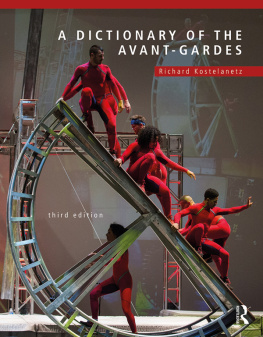
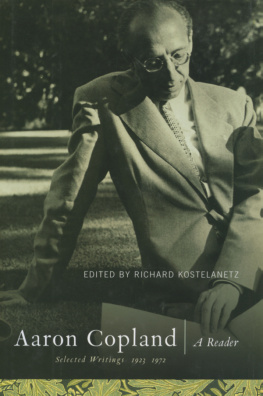
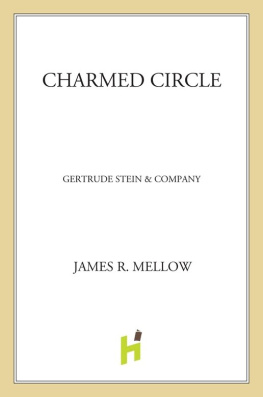
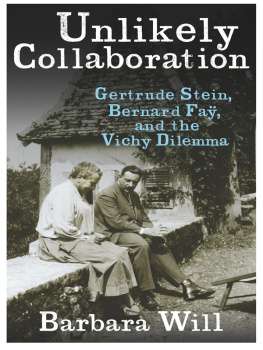
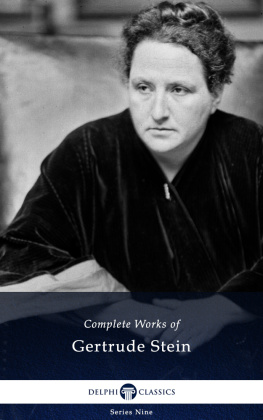
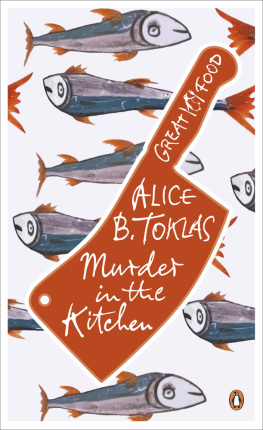
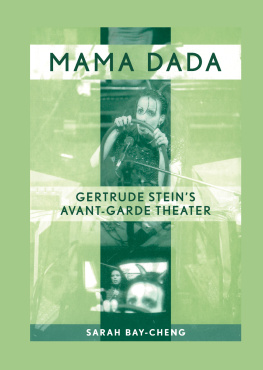
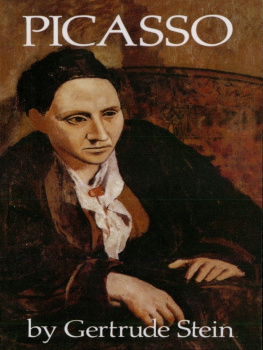

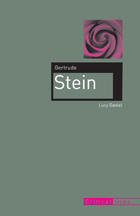
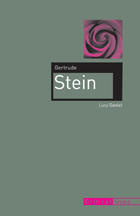

 The paper used in this publication meets the minimum requirements of American National Standard for Information SciencesPermanence of Paper for Printed Library Materials, ANSI/NISO Z39.48-1992.
The paper used in this publication meets the minimum requirements of American National Standard for Information SciencesPermanence of Paper for Printed Library Materials, ANSI/NISO Z39.48-1992.